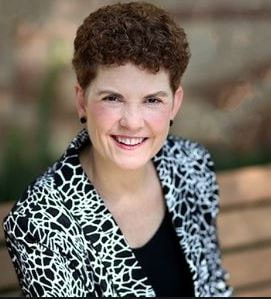How Open Technological Innovation is Changing War and Peace
with
Audrey Kurth Cronin

February 23, 2023 5 PM
Zoom Online Event
Registration Closed
Professor Audrey Kurth Cronin is one of the world’s leading experts on security and how conflicts end. She is a Trustees Professor of International Security and Technology and Director of the Institute for Politics and Strategy at Carnegie Mellon University. Her career incorporates experience in both academic and policy positions, in the US and abroad. Prior to her current post she was a Distinguished Professor of International Security and founding Director of the Center for Security, Innovation, and New Technology at American University, Washington, DC. She was also faculty member and director of War and Statecraft at the U.S. National War College. Before that she was Specialist in Terrorism at the Congressional Research Service, advising Members of Congress in the aftermath of 9/11. She also held a number of positions in the U.S. executive branch, including in the Office of the Secretary of Defense for Policy, and was Director of Studies for Oxford University’s Changing Character of War program. She has been Chairman of the Global Agenda Council on Terrorism of the World Economic Forum and a speaker at the WEF’s annual meetings in Davos.
Her latest book, Power to the People: How Open Technological Innovation is Arming Tomorrow’s Terrorists (Oxford, 2020), analyzes emerging technologies and devises a new framework for analyzing 21st century military innovation. It was short-listed for the Lionel Gelber prize and won the 2020 Neave prize.
How Open Technological Innovation is Changing War and Peace
In this presentation based on her award-winning book, Audrey Kurth Cronin will discuss how individuals and small groups have shared and used lethal technology in the past, and how they are likely to do so now. We are in a period of open technological innovation that is entirely different from what the United States faced in the Cold War, and we must adapt. Today, the diffusion of new technologies—social media, robotics, 3-D printing, synthetic biology, autonomous systems, machine learning, and various types of artificial intelligence —makes them accessible to a much broader range of people. As we see in the war in Ukraine, the resulting worldwide diffusion of lethal technology is changing how conflict unfolds, and who wins.
Zoom Online Event
Registration Closed
Professor Audrey Kurth Cronin is one of the world’s leading experts on security and how conflicts end. She is a Trustees Professor of International Security and Technology and Director of the Institute for Politics and Strategy at Carnegie Mellon University. Her career incorporates experience in both academic and policy positions, in the US and abroad. Prior to her current post she was a Distinguished Professor of International Security and founding Director of the Center for Security, Innovation, and New Technology at American University, Washington, DC. She was also faculty member and director of War and Statecraft at the U.S. National War College. Before that she was Specialist in Terrorism at the Congressional Research Service, advising Members of Congress in the aftermath of 9/11. She also held a number of positions in the U.S. executive branch, including in the Office of the Secretary of Defense for Policy, and was Director of Studies for Oxford University’s Changing Character of War program. She has been Chairman of the Global Agenda Council on Terrorism of the World Economic Forum and a speaker at the WEF’s annual meetings in Davos.
Her latest book, Power to the People: How Open Technological Innovation is Arming Tomorrow’s Terrorists (Oxford, 2020), analyzes emerging technologies and devises a new framework for analyzing 21st century military innovation. It was short-listed for the Lionel Gelber prize and won the 2020 Neave prize.
How Open Technological Innovation is Changing War and Peace
In this presentation based on her award-winning book, Audrey Kurth Cronin will discuss how individuals and small groups have shared and used lethal technology in the past, and how they are likely to do so now. We are in a period of open technological innovation that is entirely different from what the United States faced in the Cold War, and we must adapt. Today, the diffusion of new technologies—social media, robotics, 3-D printing, synthetic biology, autonomous systems, machine learning, and various types of artificial intelligence —makes them accessible to a much broader range of people. As we see in the war in Ukraine, the resulting worldwide diffusion of lethal technology is changing how conflict unfolds, and who wins.
